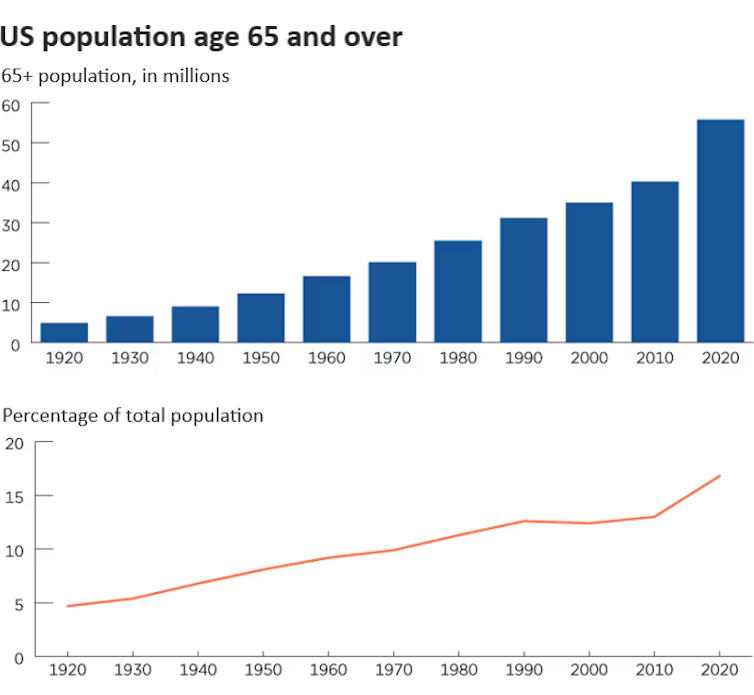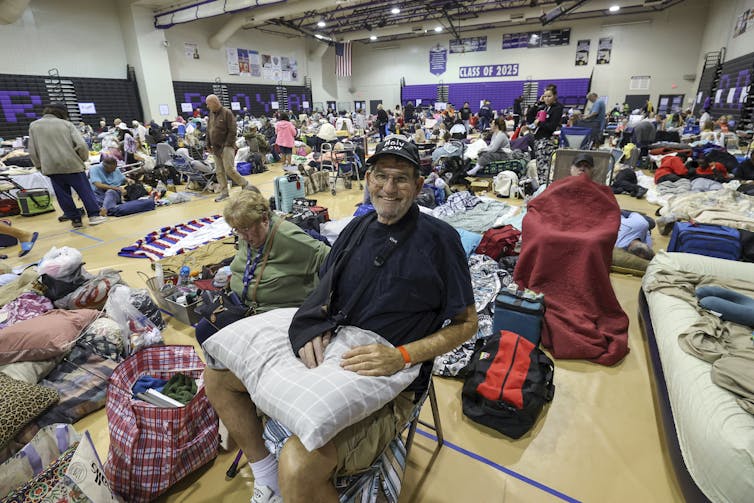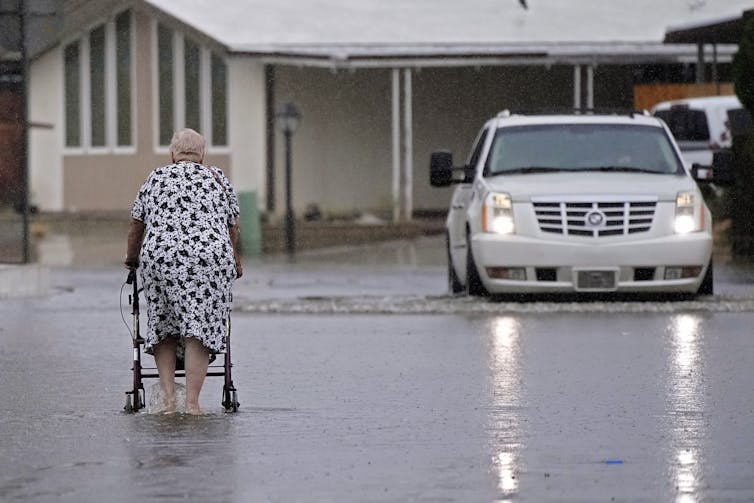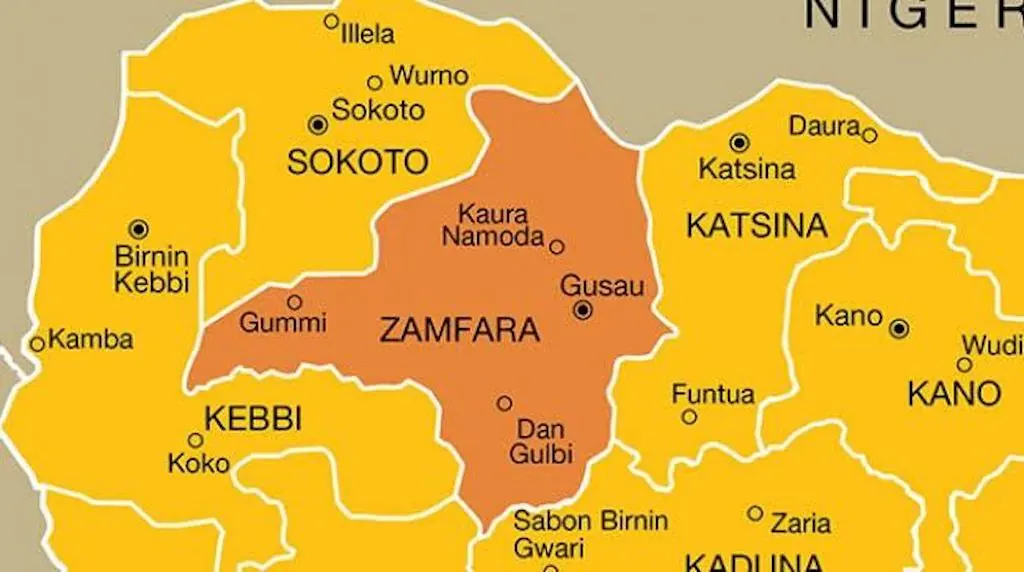Hurricane disaster planning with aging parents should start now, before the storm: 5 tips - The Apopka Voice
When I lived in Florida, I had a neighbor named Ms. Carmen. She was in her late 70s, fiercely independent, and lived alone with her two dogs and one cat, which were her closest companions.
Each hurricane season, she would anxiously ask if I would check on her when the winds began to pick up. She once told me: I’m more afraid of being forgotten than of the storm itself. Her fear wasn’t just about the weather; it was about facing it alone.
When hurricanes hit, we often measure the damage in downed power lines, flooded roads, and wind-torn homes. But some of the most serious consequences are harder to see, especially for older adults who may struggle with mobility, chronic health problems, and cognitive decline.
Emergency preparedness plans too often overlook the specific needs of elders in America’s aging population, many of whom live alone. For people like Ms. Carmen, resilience must start long before the storm.
 The number of older adults in the U.S. and the percentage of the population age 65 and older have been rising. US Census Bureau
The number of older adults in the U.S. and the percentage of the population age 65 and older have been rising. US Census BureauI study disaster preparations and response. To prepare for hurricane season, and any other disaster, I encourage families to work with their older adults now to create an emergency plan. Preparing can help ensure that older adults will be safe, able to contact relatives or others for help, and will have the medications, documents and supplies they need, as well as the peace of mind of knowing what steps to take.
In 2024, Hurricanes Helene and Milton put a spotlight on the risks to older adults.
The storms forced thousands of people to evacuate, often to shelters with little more than food supplies and mattresses on the floor and ill-equipped for medical needs.
Flooding isolated many rural homes, stranding older adults. Power was out for weeks in some areas. Emergency systems were overwhelmed.
A tornado tore into a senior community in Port St. Lucie, Florida, during Milton, killing six people. Some long-term care facilities lost power and water during Helene.
At the same time, some older adults chose to stay in homes in harm’s way for fear that they would be separated from their pets or that their homes would be vandalized.
 At least 700 people stayed in chairs or on air mattresses at River Ridge Middle/High School in New Port Richey, Fla., during Hurricane Milton. AP Photo/Mike Carlson
At least 700 people stayed in chairs or on air mattresses at River Ridge Middle/High School in New Port Richey, Fla., during Hurricane Milton. AP Photo/Mike CarlsonThese events are not just tragic, they are predictable. Many older adults cannot evacuate without assistance, and many evacuation centers aren’t prepared to handle their needs.
Helping older adults prepare for emergencies should involve the entire family so everyone knows what to expect. The best plans are personal, practical and proactive, but they will contain some common elements.
Here are five important steps:
Disasters can leave older adults without essential information and supplies that they need, such as prescription lists, financial records, medical devices and – importantly – contact information to reach family, friends and neighbors who could help them.
Many older adults rely on preprogrammed phone numbers. If their phone is lost or the battery dies, they may not know how to reach friends or loved ones, so it’s useful to have a hard copy of phone numbers.
Consider encouraging the use of medical ID bracelets or cards for those with memory loss.
Critical documents like wills, home deeds, powers of attorney and insurance records are frequently kept in physical form and may be forgotten or lost in a sudden evacuation. Use waterproof storage that’s easy to carry, and share copies with trusted caregivers and family members in case those documents are lost.
Think about that person’s assistive devices and health needs. Having extra batteries on hand is important, as is remembering to bring chargers and personal mobility aids, such as walkers, canes, mobility scooters or wheelchairs. Do not forget that service animals support mobility, so having supplies of their food will be important during a hurricane or evacuation.
Ask doctors to provide an emergency set of medications in case supplies run low in a disaster.
If the person is staying in their home, prepare for at least 72 hours of self-sufficiency in case the power goes out. That means having enough bottled water, extra pet food and human food that doesn’t need refrigeration or cooking.
Identify nearby shelters that will likely be able to support older adults’ mobility and cognitive challenges. If the person has pets, make a plan for them, too – many areas will have at least one pet-friendly shelter, but not all shelters will take pets.
Figure out how the person will get to a shelter and have a backup plan in case their usual transportation isn’t an option. Decide where they will go and how they will get there if they can’t return home after a storm.
If your loved one lives in a care facility, ask to see that facility’s hurricane plan.
Don’t rely on just one caregiver or family member to check on older adults. Involve neighbors, faith communities or local services such as home-delivered meals, transportation assistance, support groups and senior centers. Redundancy is crucial when systems break down.
Go through the evacuation steps in advance so everyone knows what to do. Executing the plan should be second nature, not a scramble during a disaster or crisis.
Emergency planning isn’t something done for older adults – it’s something done with them.
Elders bring not only vulnerability but also wisdom. Their preferences and autonomy will have to guide decisions for the plan to be successful in a crisis.
That means listening to their needs, honoring their independence, and ensuring caregivers have realistic plans in place. It’s an important shift from reacting to a storm to preparing with purpose.![]()
This article is republished from The Conversation under a Creative Commons license.











